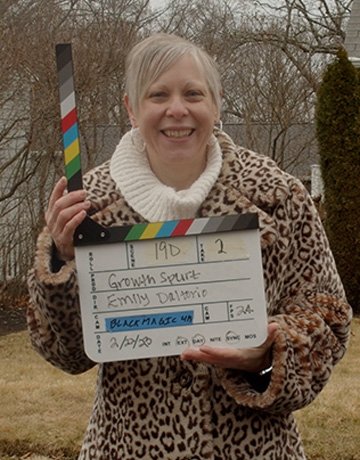
- Department, Office, or School
- Department of English
- Film Studies Program
- Faculty Center for Teaching and Learning
- Associate Professor
- emailrsibielski@ric.edu
- phone401-456-6393
- location_onCraig-Lee Hall, 043
Since the scholarly work that I do is in the area of cultural studies, it encompasses aspects of contemporary popular culture that span both literature and media, though it is largely focused on film, television, and streaming series. My primary research interest is in the cultural dimensions of shared stories—both the function of such stories and the ways in which they variously reflect, impact, and even sometimes challenge, the things that we as a culture believe about ourselves, the world around us, and our places in that world. All of the courses that I teach also examine these aspects of storytelling, as well as the ways in which audiences engage with, interpret, and otherwise interact with popular stories in order to make meaning from them.
The film production courses that I teach focus primarily on the development and preproduction phases of filmmaking, though I also teach our introductory-level production course that covers the fundamentals of cinematography, editing, and sound recording. Additionally, I coordinate and oversee the year-long narrative film production that our majors participate in every-other-year, and I am the faculty advisor for all production-based honors projects.
The film studies courses that I teach focus on developments in contemporary media production and in the film, television, and streaming industries. This includes stories that unfold (and are told) across some combination of literature, comics, movies, TV/ streaming series, digital media, and video games. Because one of the cultural dimensions of storytelling that I am most interested in as a film and media scholar involves the ways in which popular stories both shape and are shaped by the different ways that our culture thinks about personal identity and social identity, I also teach a number of film studies courses and literature courses that focus on examining the intersections between popular culture representations of gender, sexuality, mental health, disability, and all the ways in which our culture thinks about and understands these identity categories.
Education
B.A., Rhode Island College
M.A., Rhode Island College
Ph.D., Bowling Green State University
Selected Publications
2024. Grief, Madness, and Crises of Masculinity in Mind-Game Films. Lanham: Lexington Books.
2021. "'What else about our reality is actually a disorder?': Mental Illness as Crisis of Reality and Morality in FX's Legion." forthcoming, Television and New Media.
2019. "Reviving Cinderella: Contested Feminism and Conflicting Models of Female Empowerment in 21st-Century Film and Television Adaptations of "Cinderella", Quarterly Review of Film and Video, Vol. 36, Issue 7 (2019): 584-610.
2013. "Gendering the Monster Within: Biological Essentialism, Sexual Difference, and the Changing Symbolic Functions of the Monster in Popular Werewolf Texts" in Monstrous Culture in the 21st Century: A Reader, editors Marina Levina and Diem-My Bui (Bloomsbury Publishing, June 2013).
2012. "Beyond Democratization and Subversion: Rethinking Feminist Analytical Approaches to Girls' Cultural Production on the Internet" in Cyberfeminism 2.0, editors Radhika Gajjala and Yeun Ju Oh (Peter Lang Publishing Group, March 1, 2012).
2011. "Becoming Victim, Becoming Empowered, Becoming Girl: Discourses of Girlhood in the U.S. at the Turn of the Millennium," in "Becoming Girl," ed. Leandra Preston, special issue, Rhizomes 22 (Summer 2011): available online at http://www.rhizomes.net/issue22/index.html.
2010. "'Nothing Hurts the Cause More Than That': Veronica Mars and the Business of the Backlash," Feminist Media Studies 10, no. 3 (2010): 321-334.
2004. "Postmodern Narrative or Narrative of the Postmodern?: History, Identity and the Failure of Rationality as an Ordering Principle in Memento," Literature and Psychology 49, no. 4 (2004): 82-100.
Courses
ENGL 120: Studies in Literature and Identity
ENGL 123: Studies in Literature and Genre
ENGL 550 Comparative Storytelling: Literature, Film, TV, and Digital Media
FILM 116 Introduction to Film
FILM 218: Foundations In Film Production
FILM 221 Film History II
FILM 350: Media Convergence & Convergence Culture
FILM 351: Global Queer Cinema
FILM 352 Queer Cinema
FILM 352 Monster Movies
FILM 353 Middle Eastern Cinema
FILM 354 Quality TV
FILM 354 Comparative Media: Film v. TV
FILM 355 Movies and Participatory Culture
FILM 355: Transmedia Storytelling
FILM 372: Preproduction
